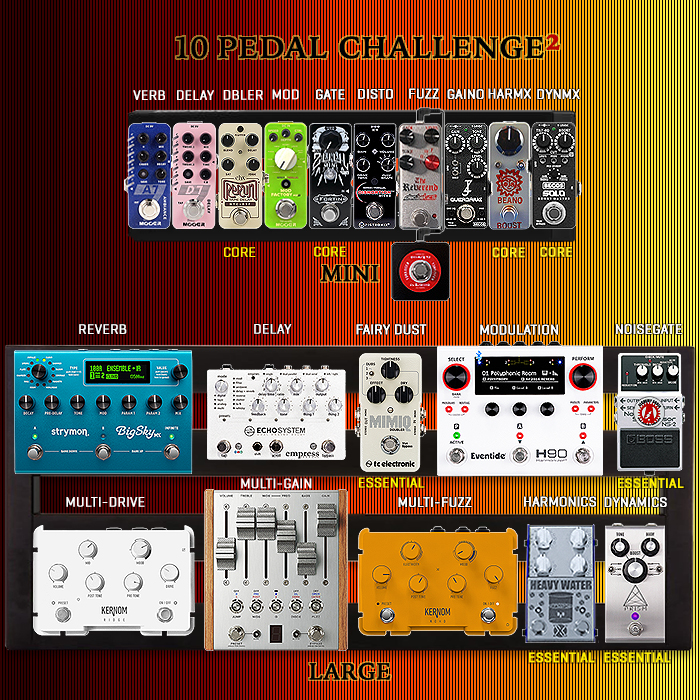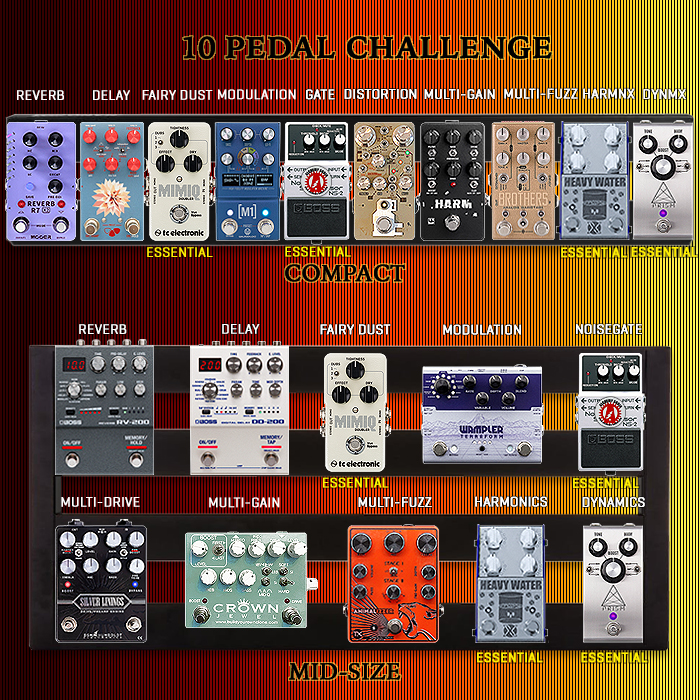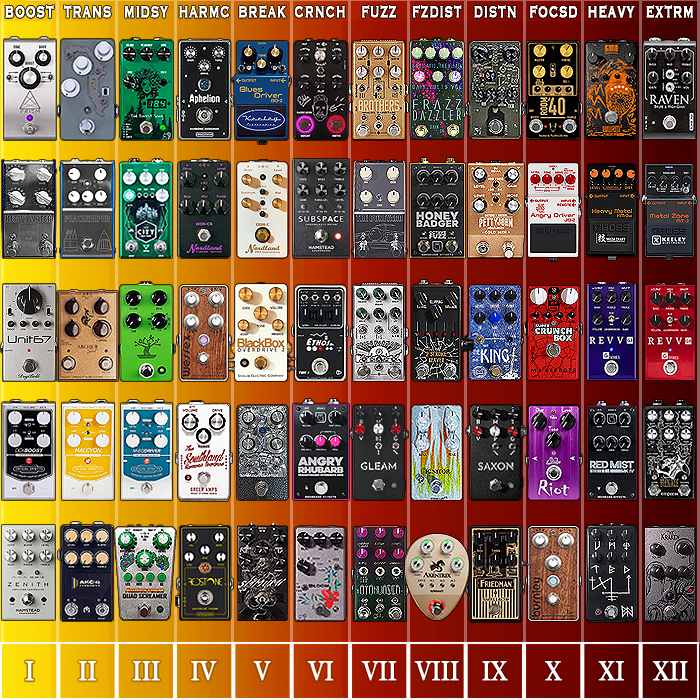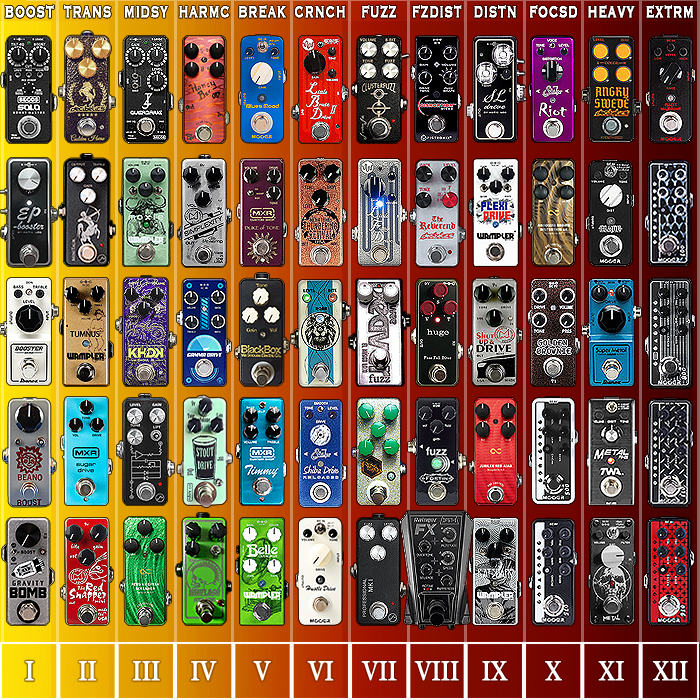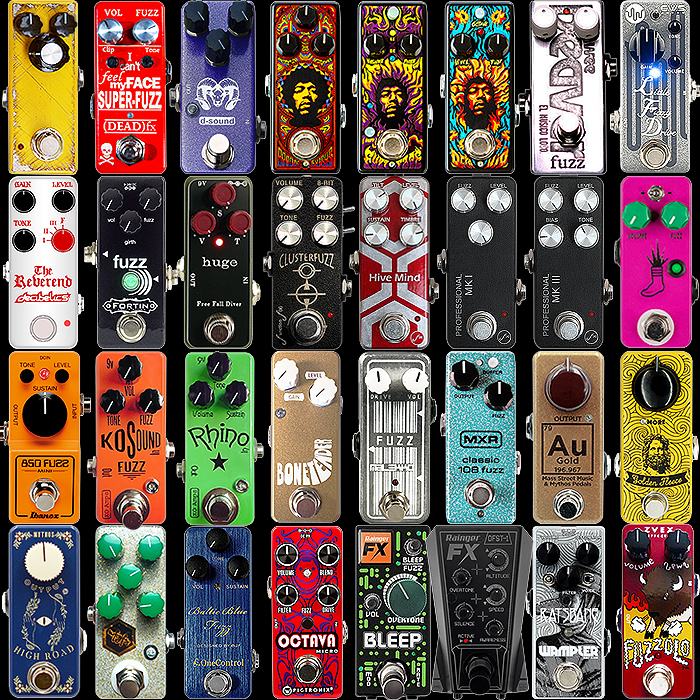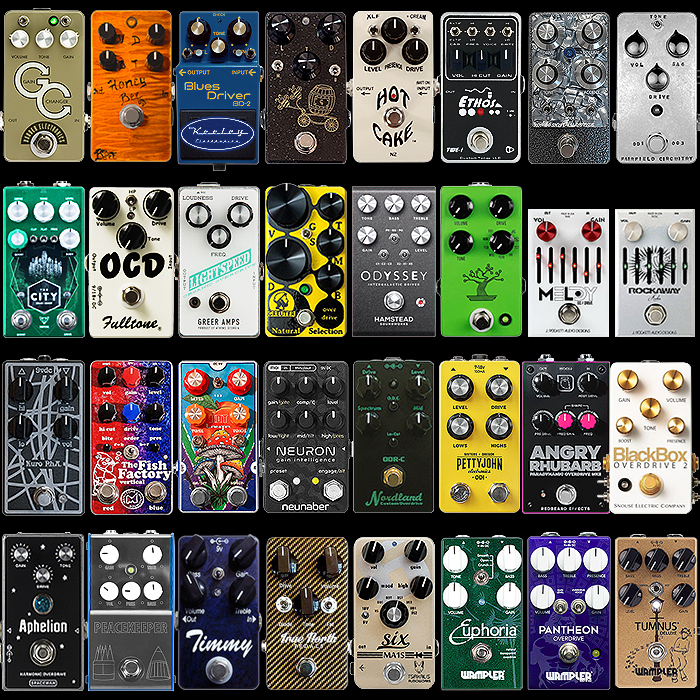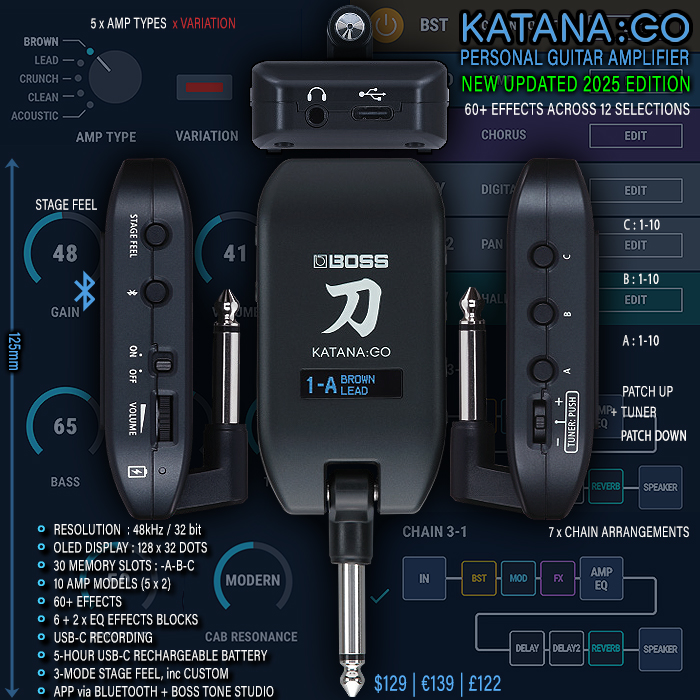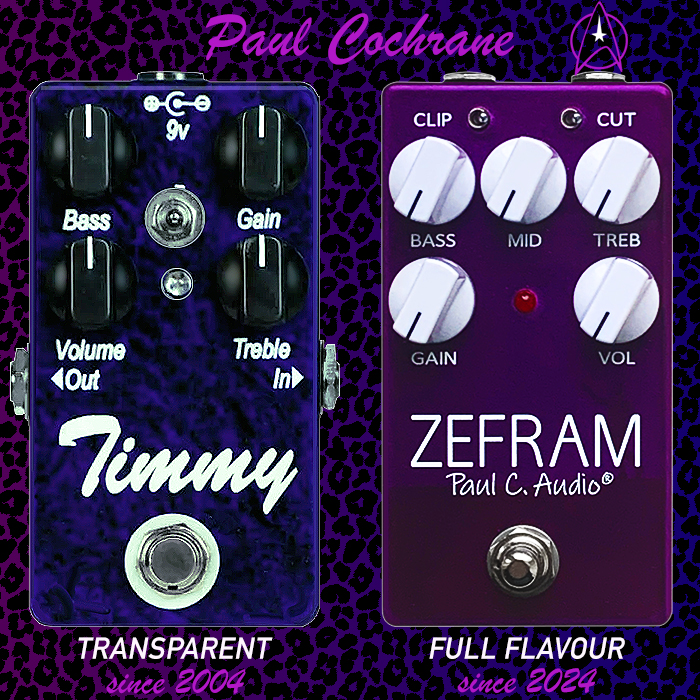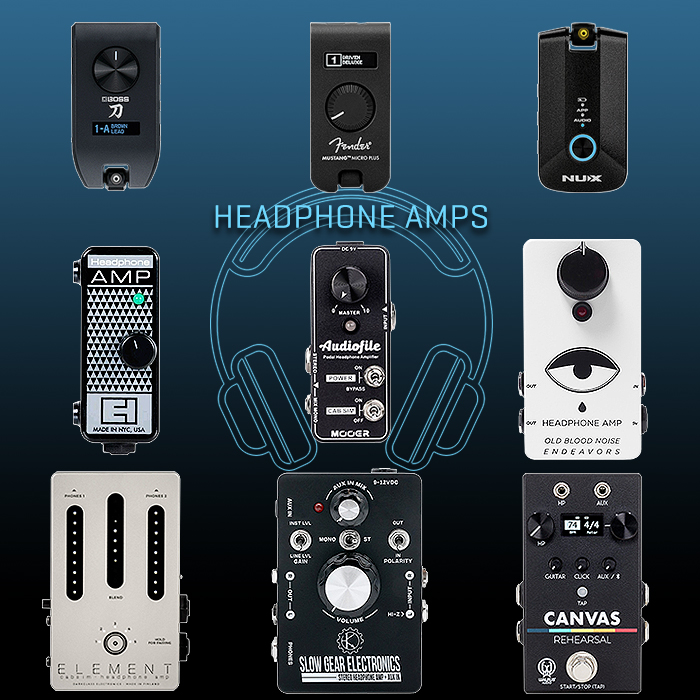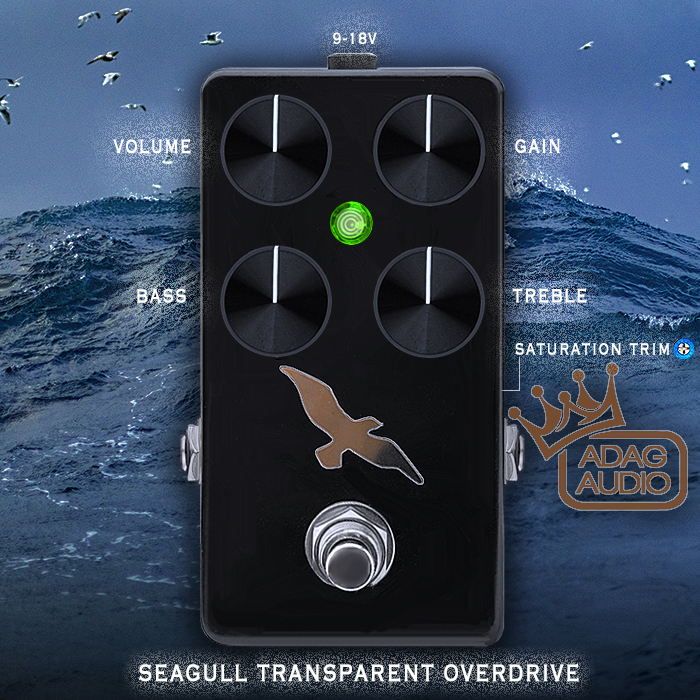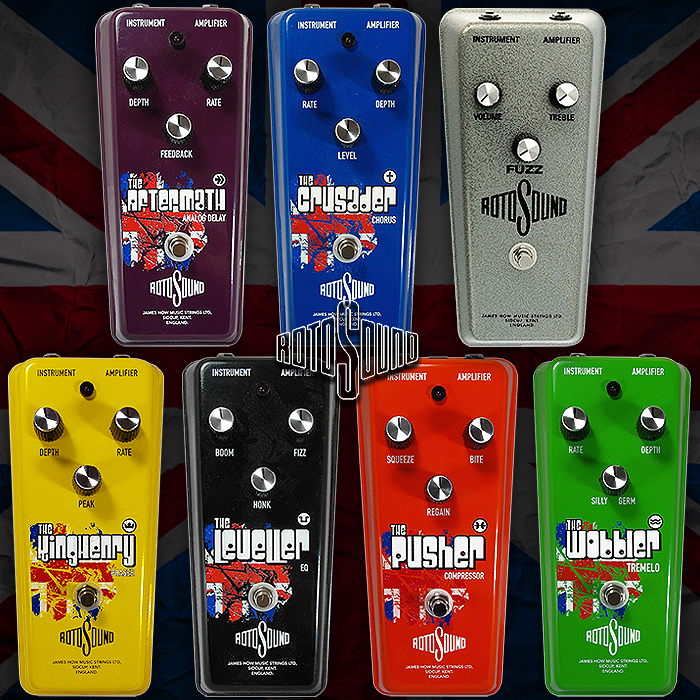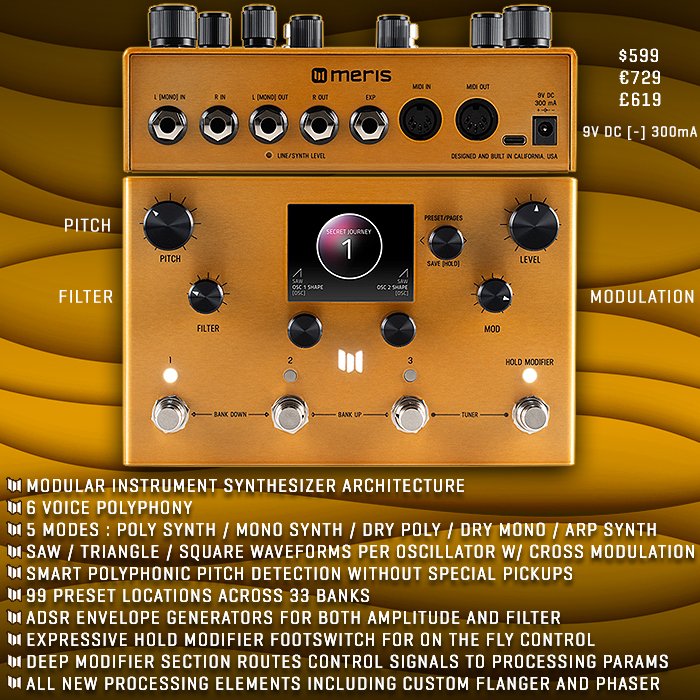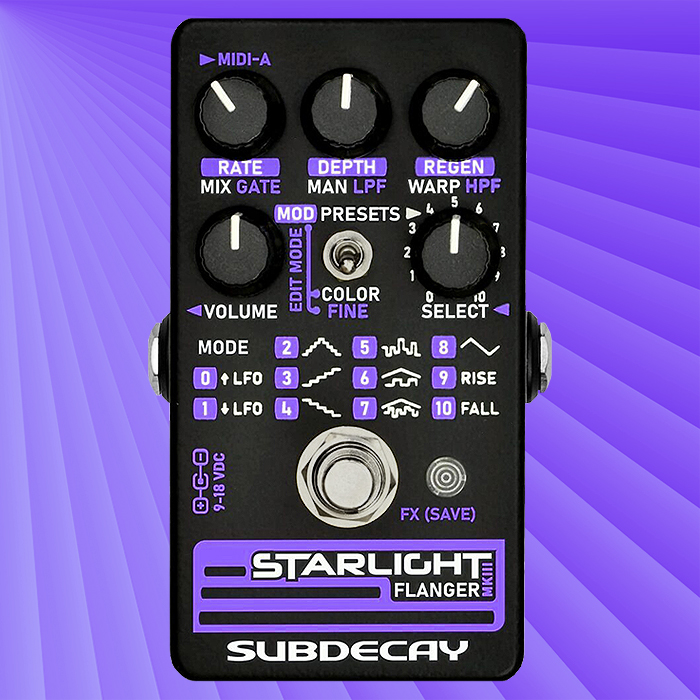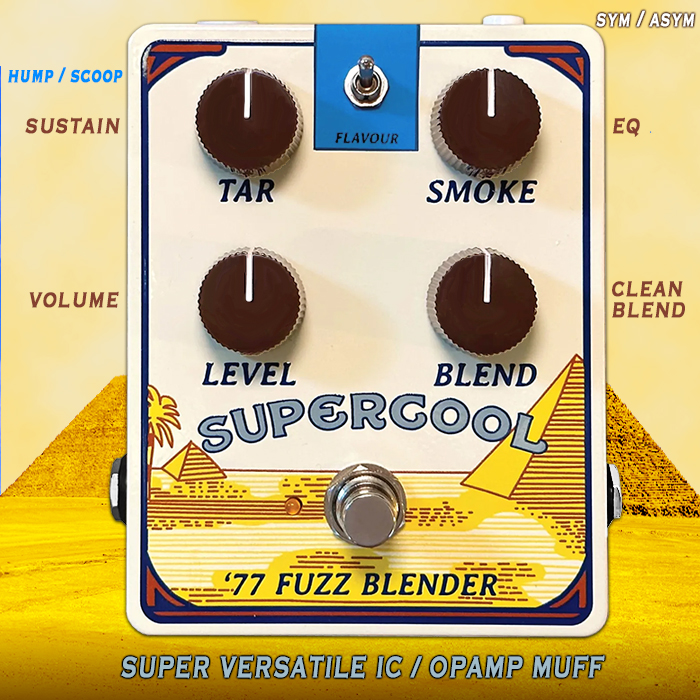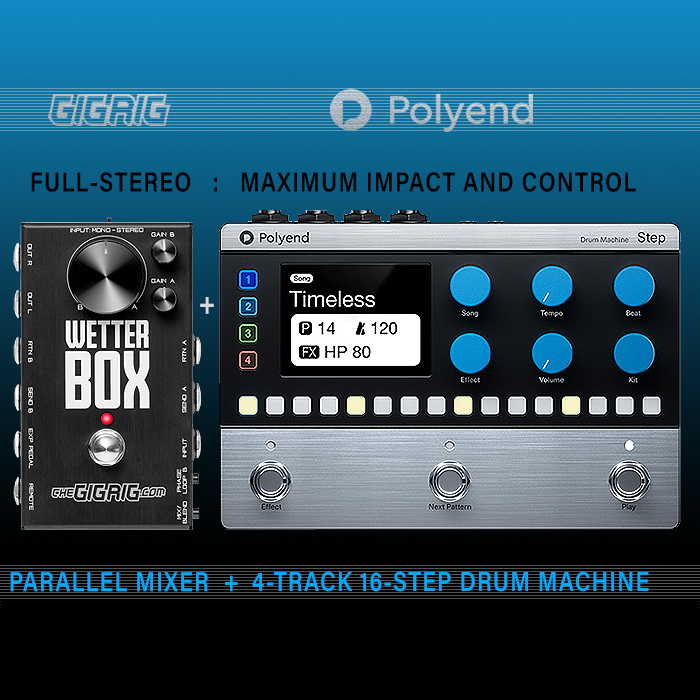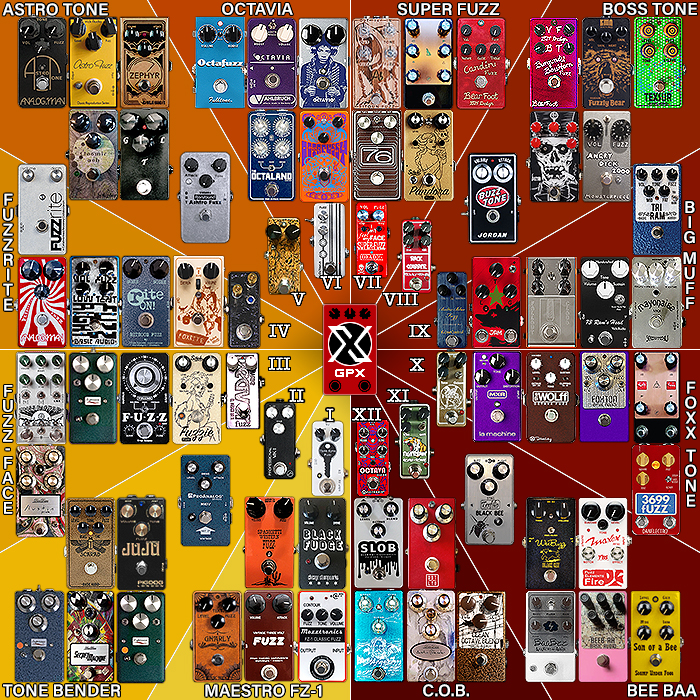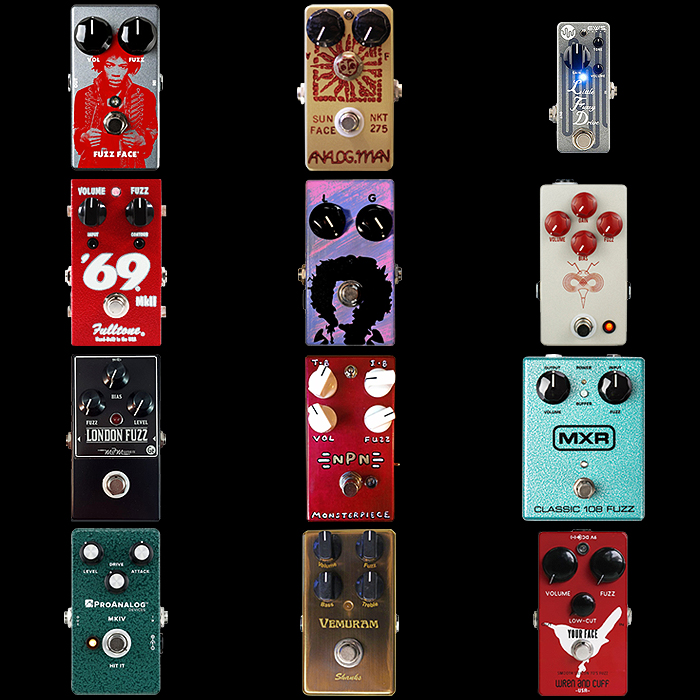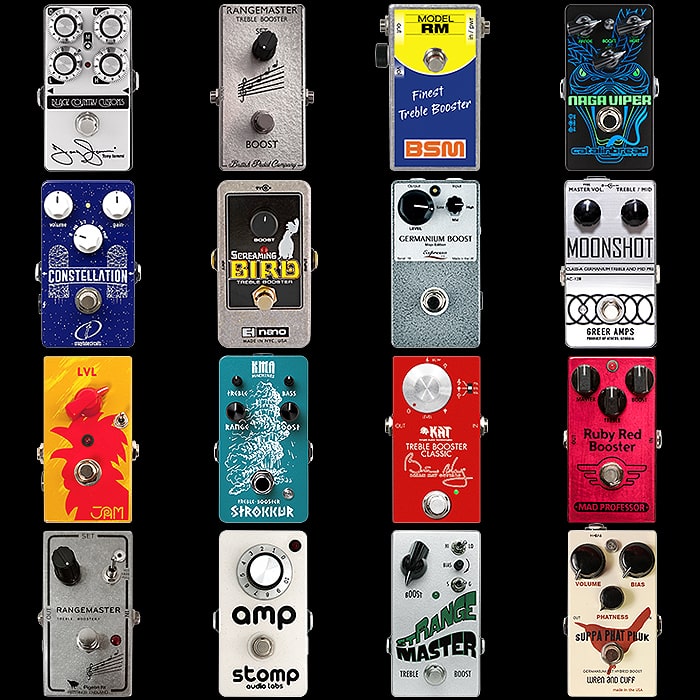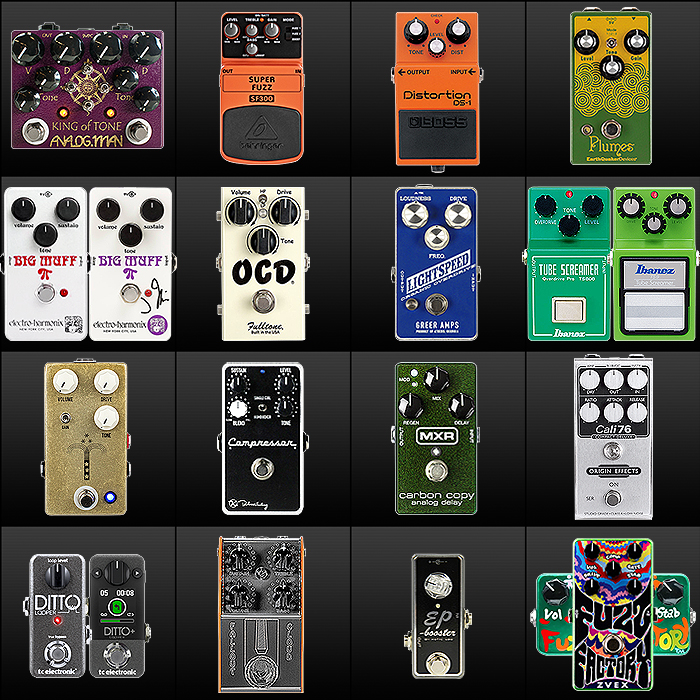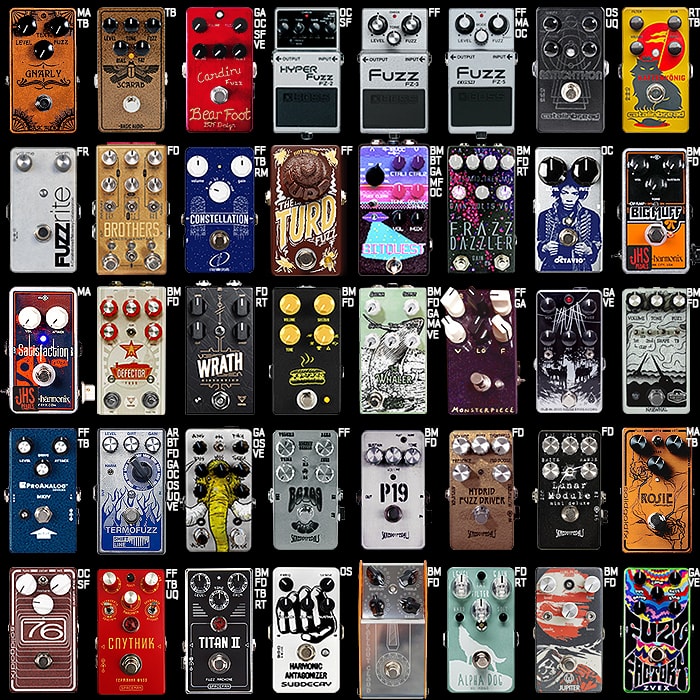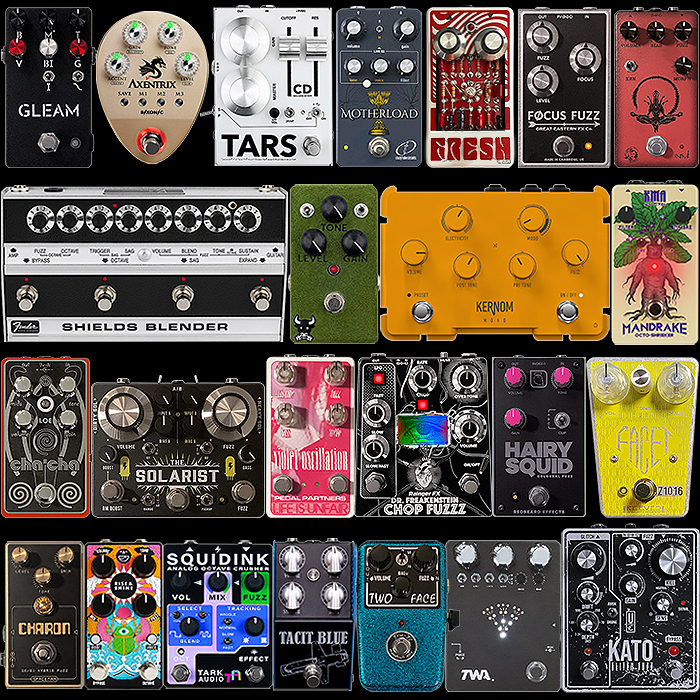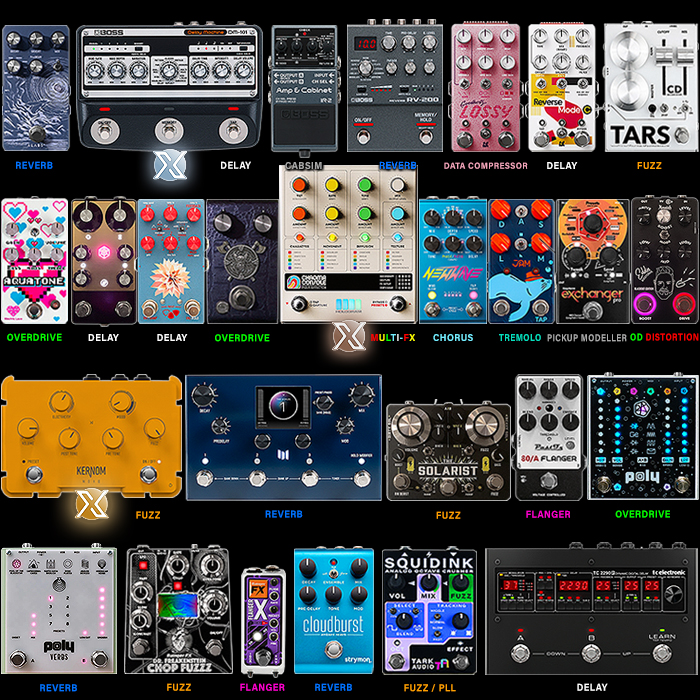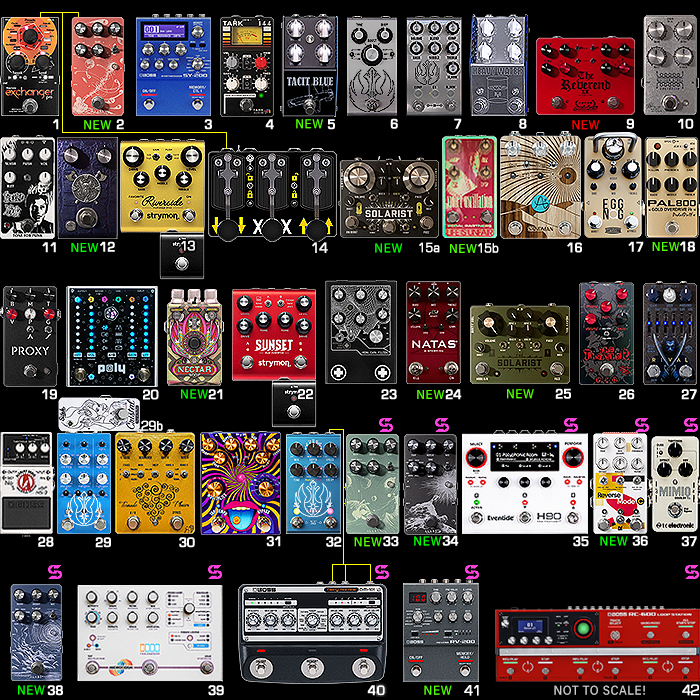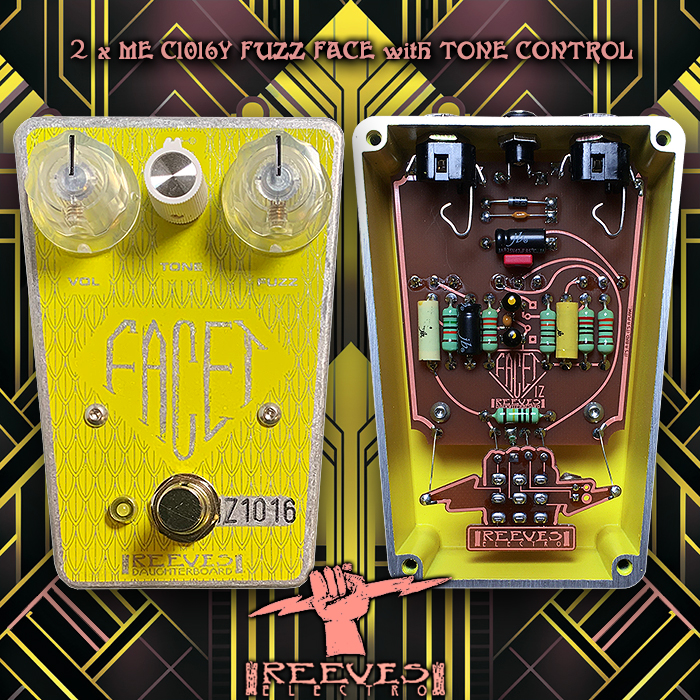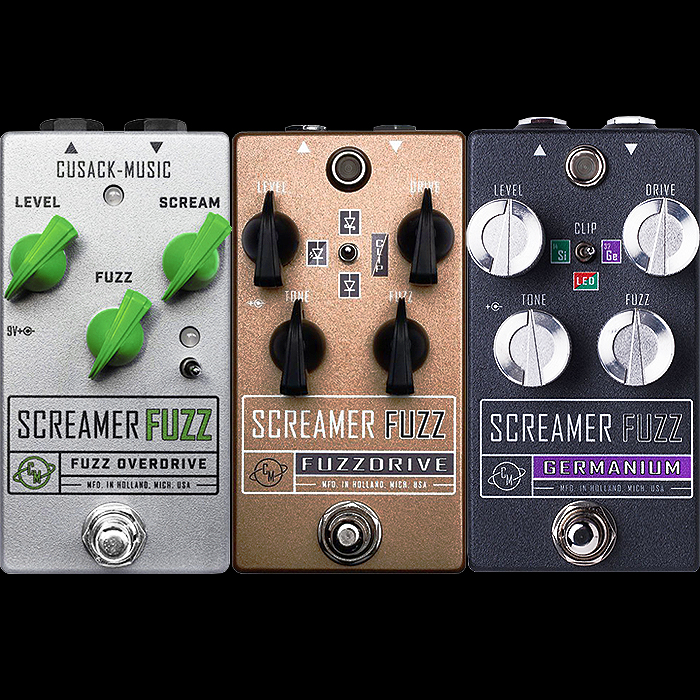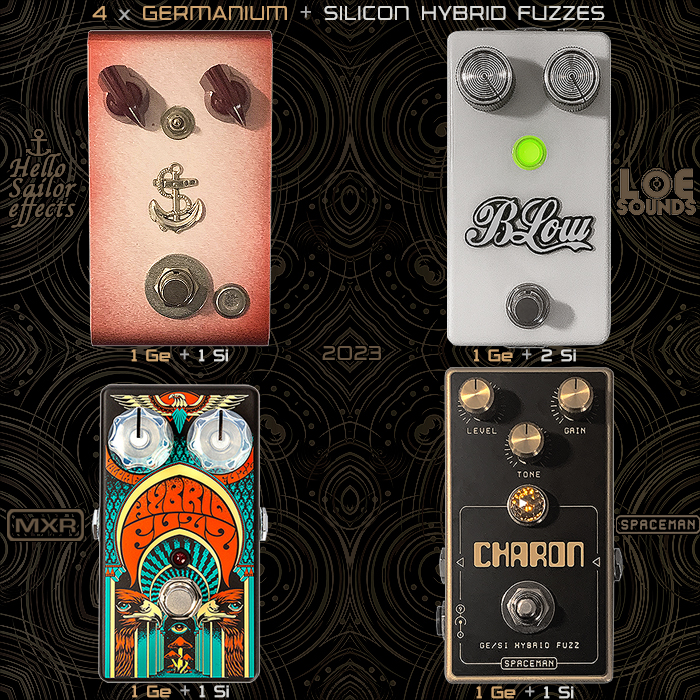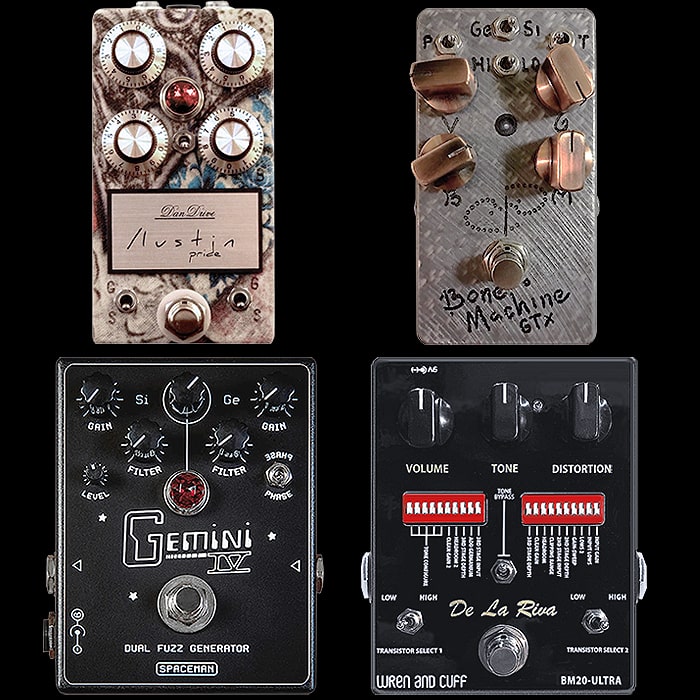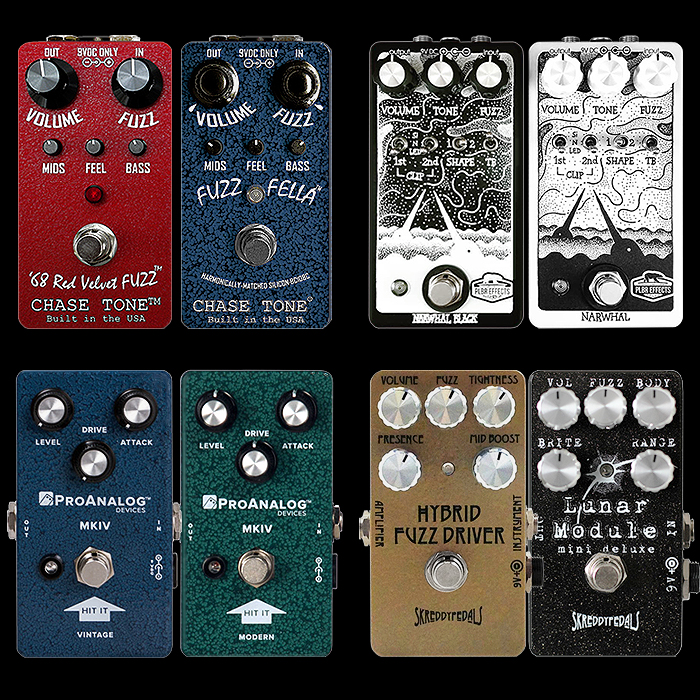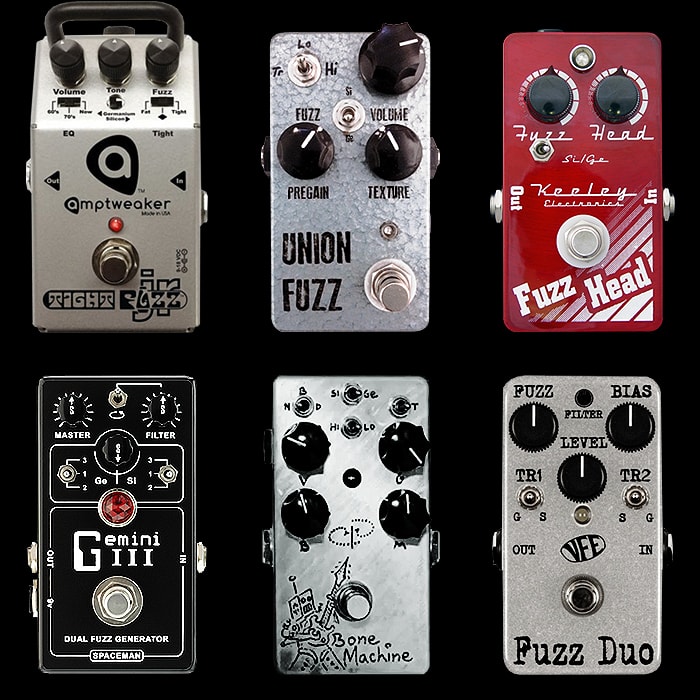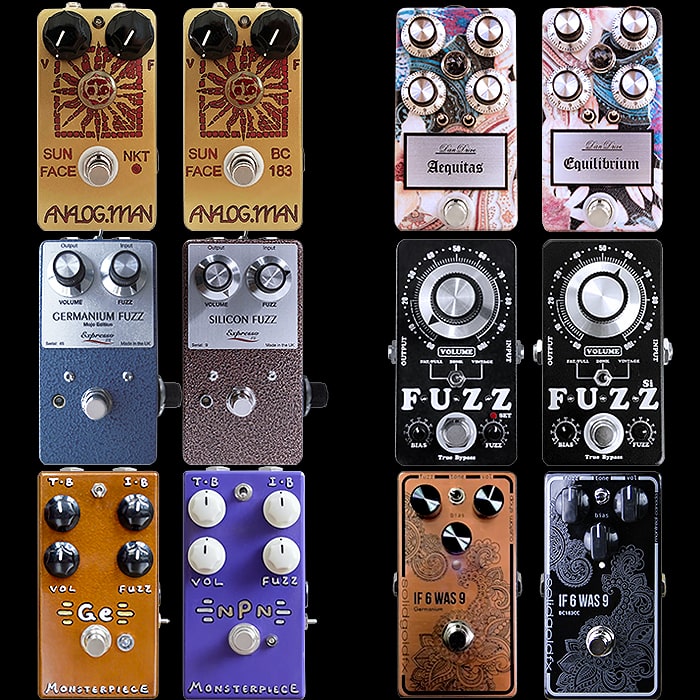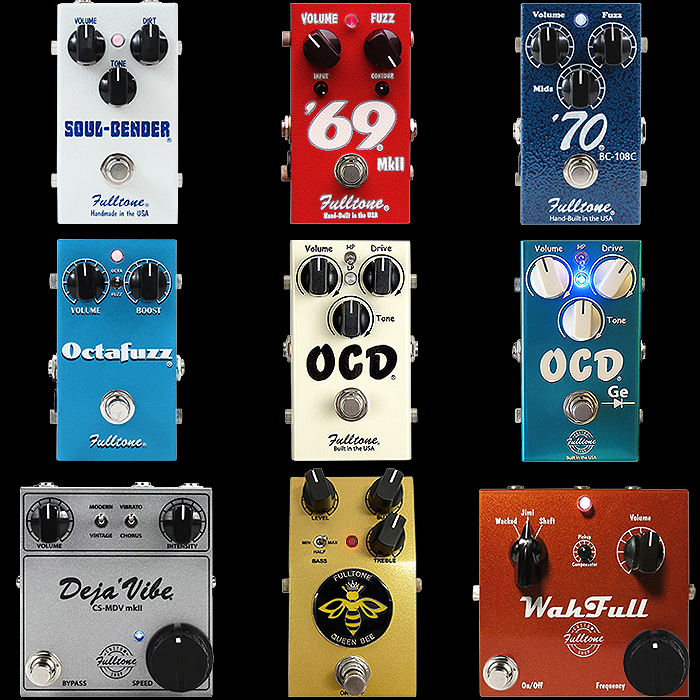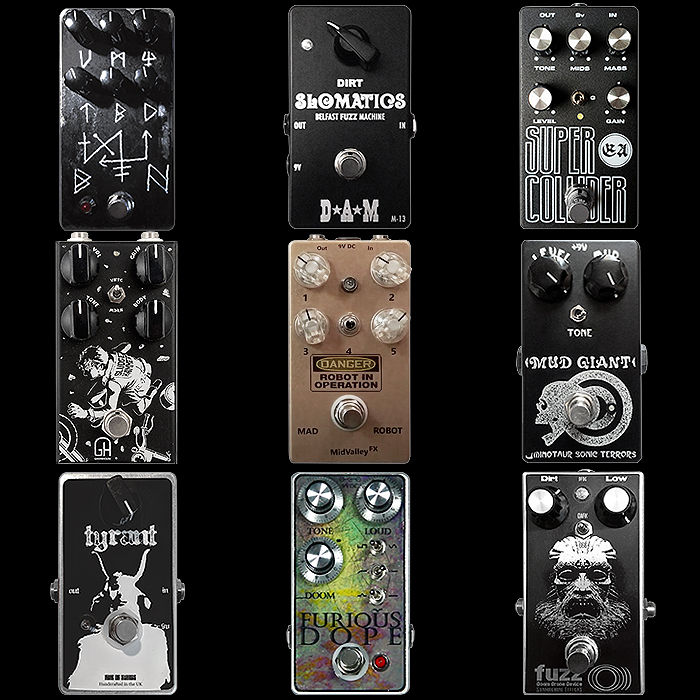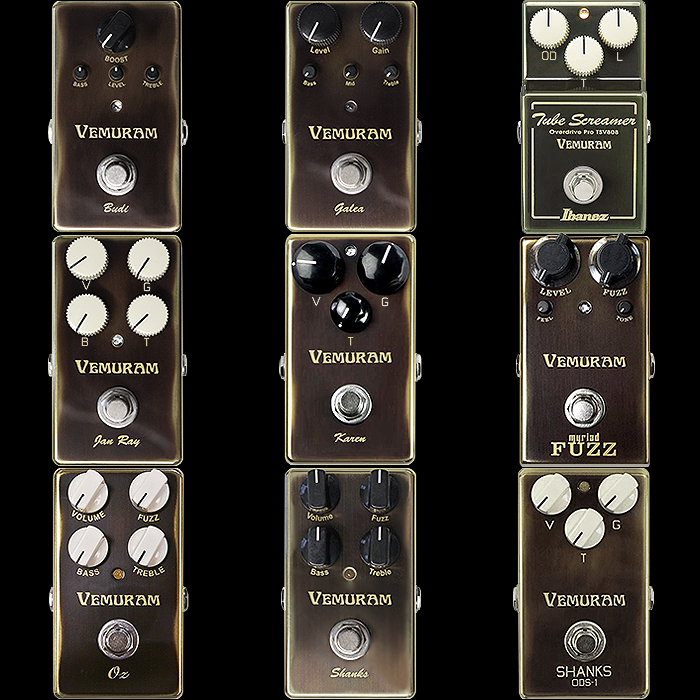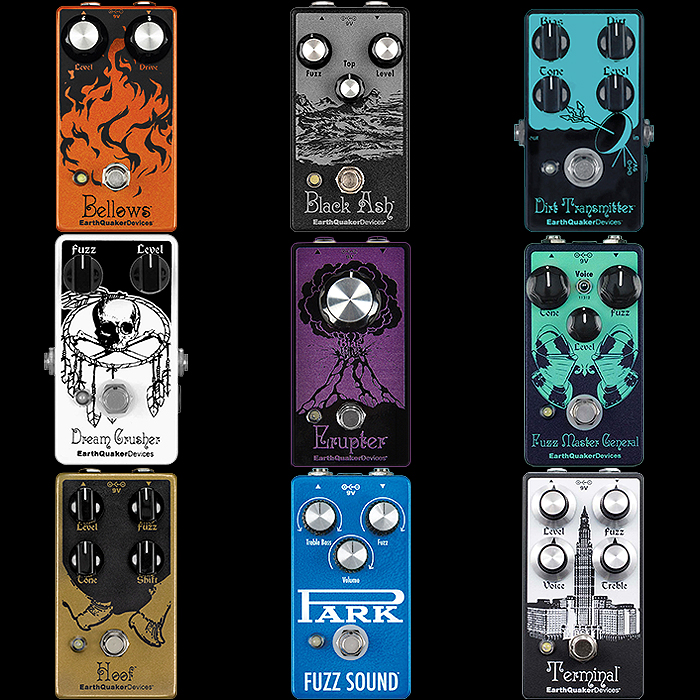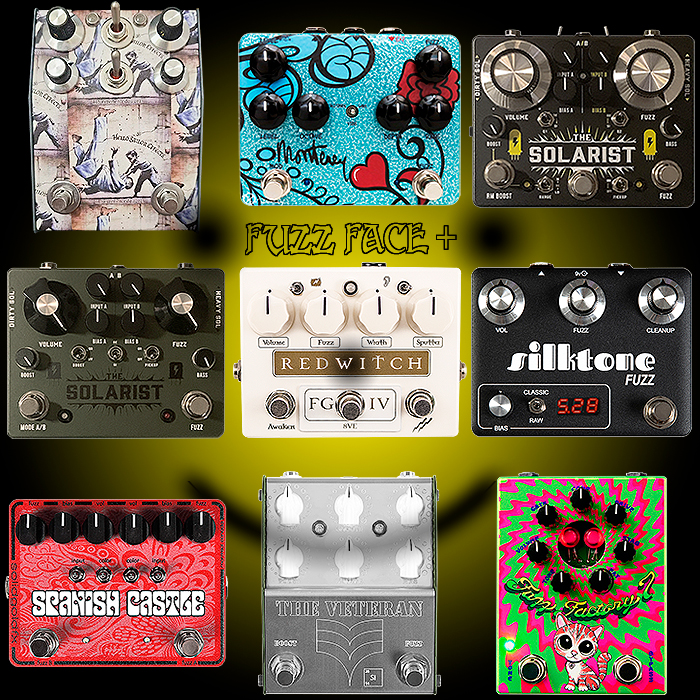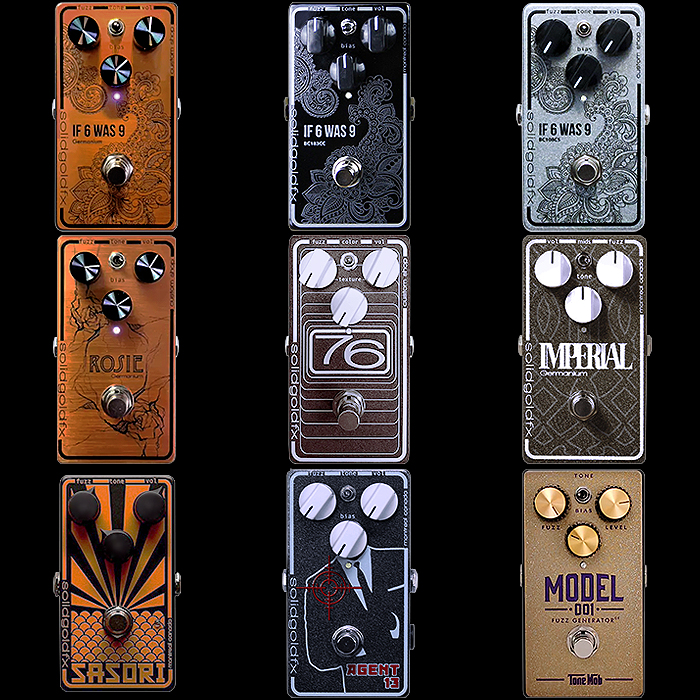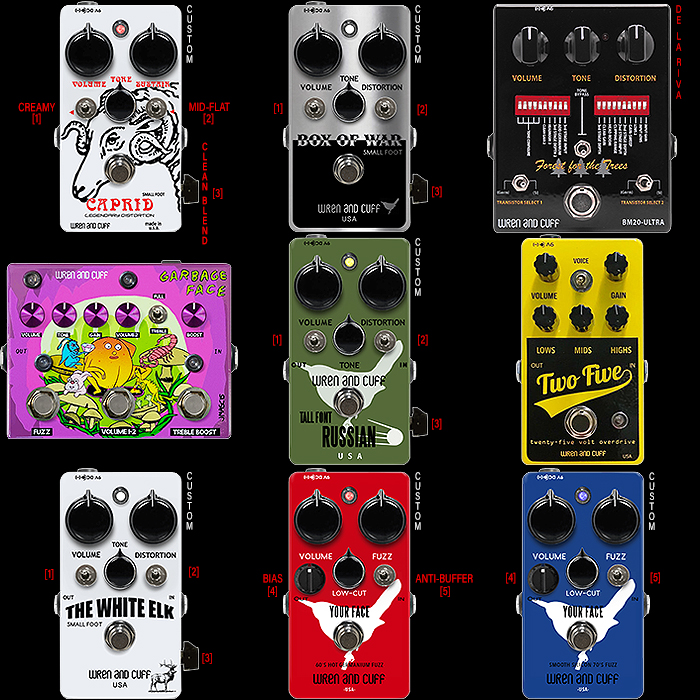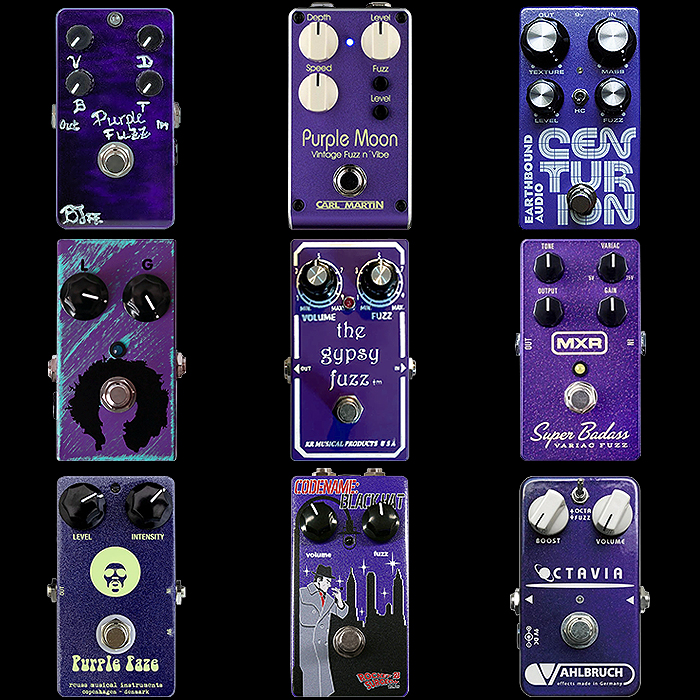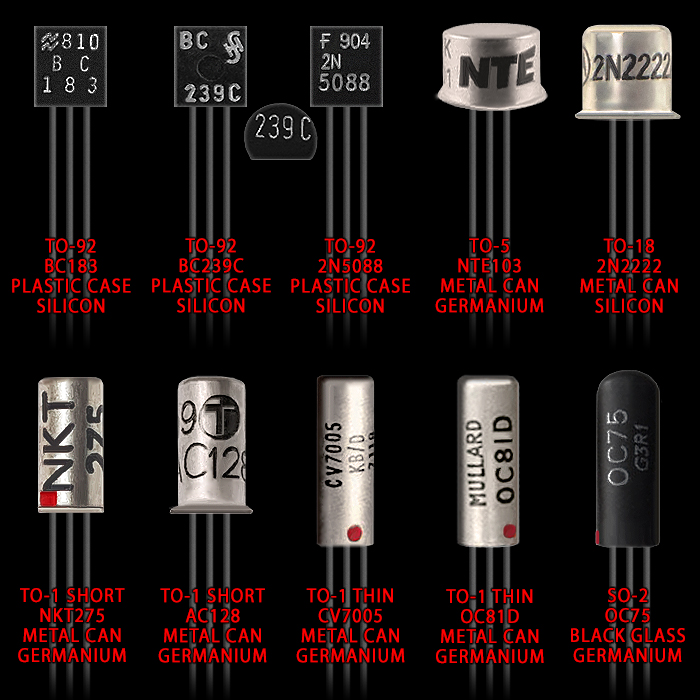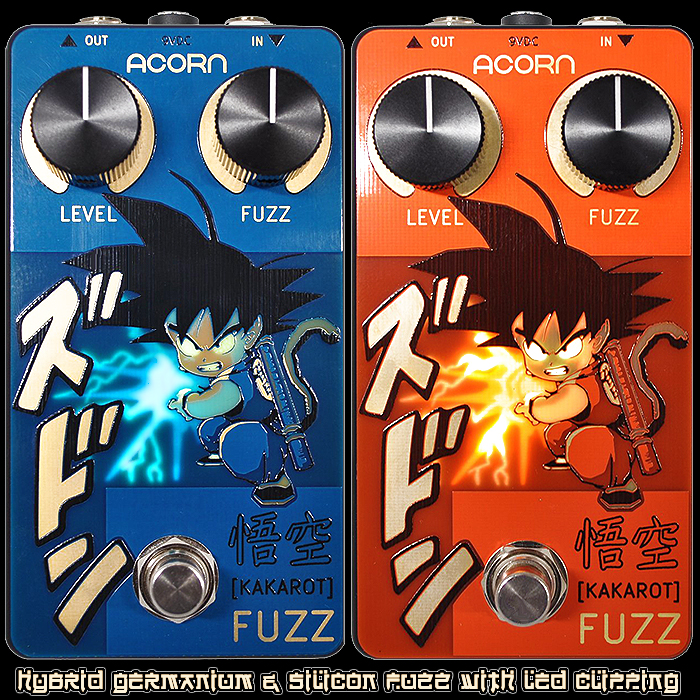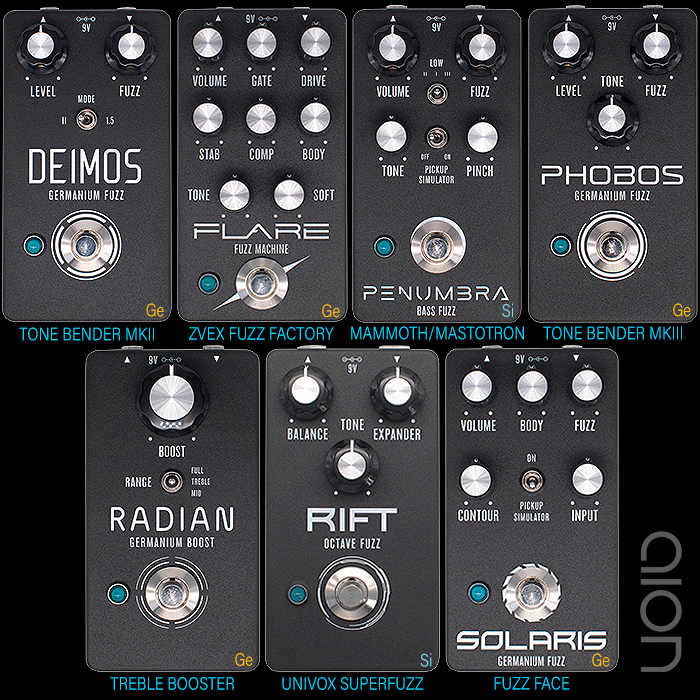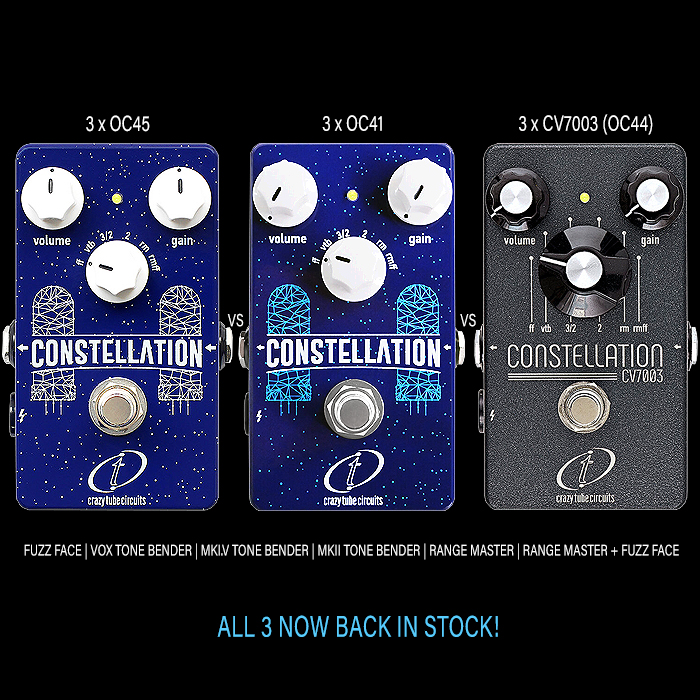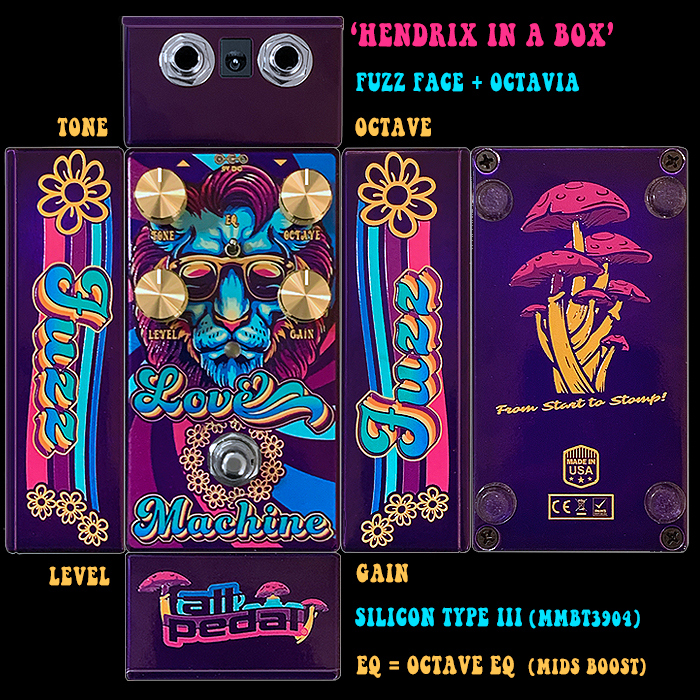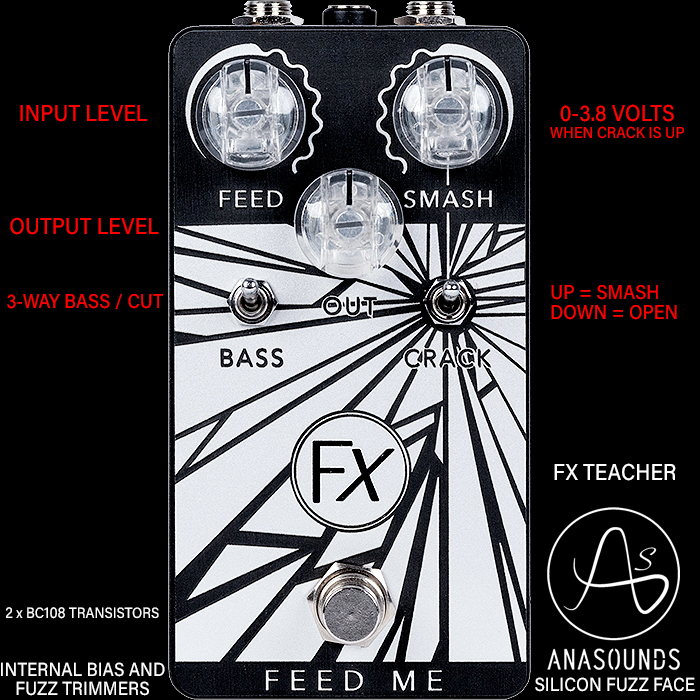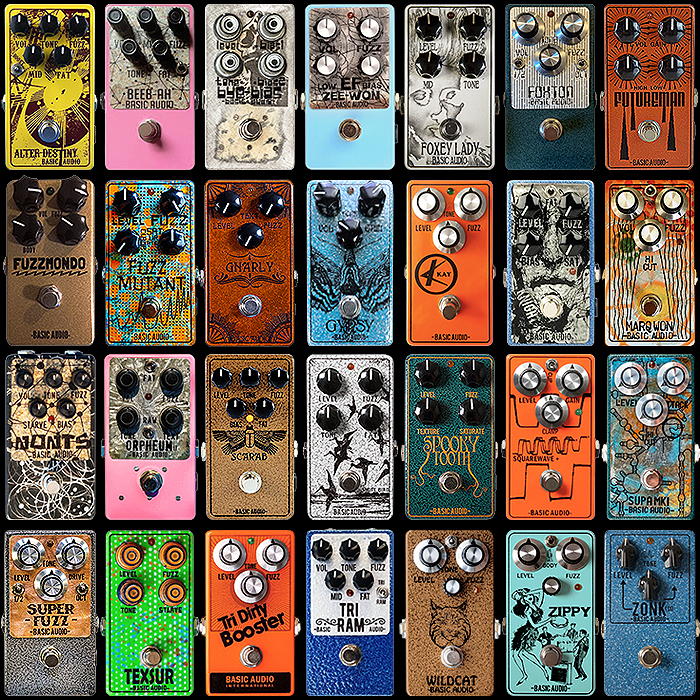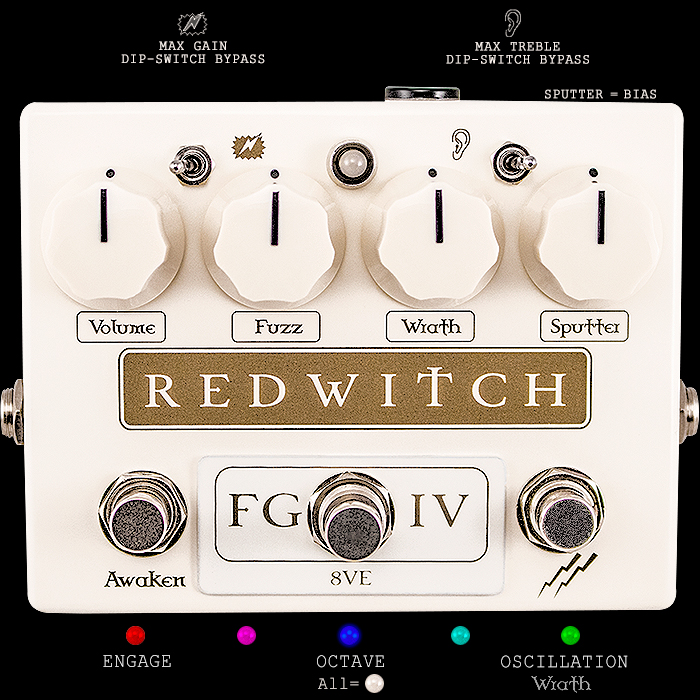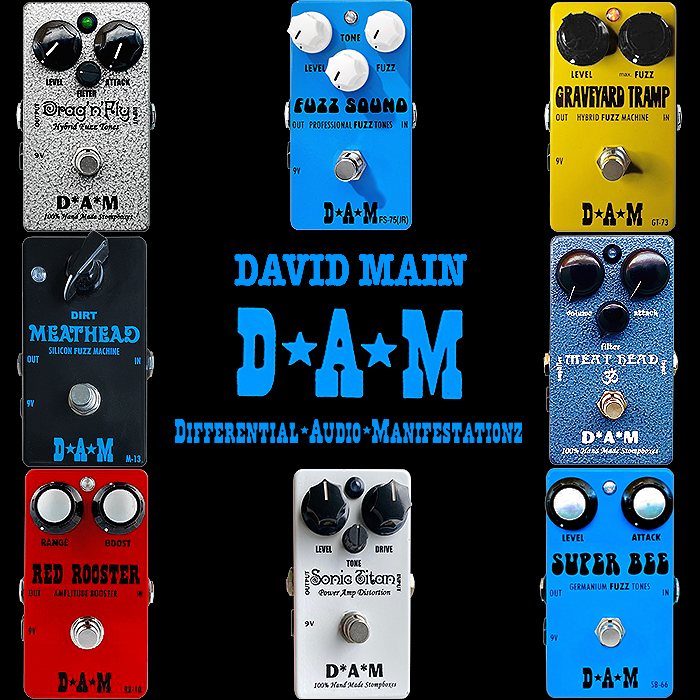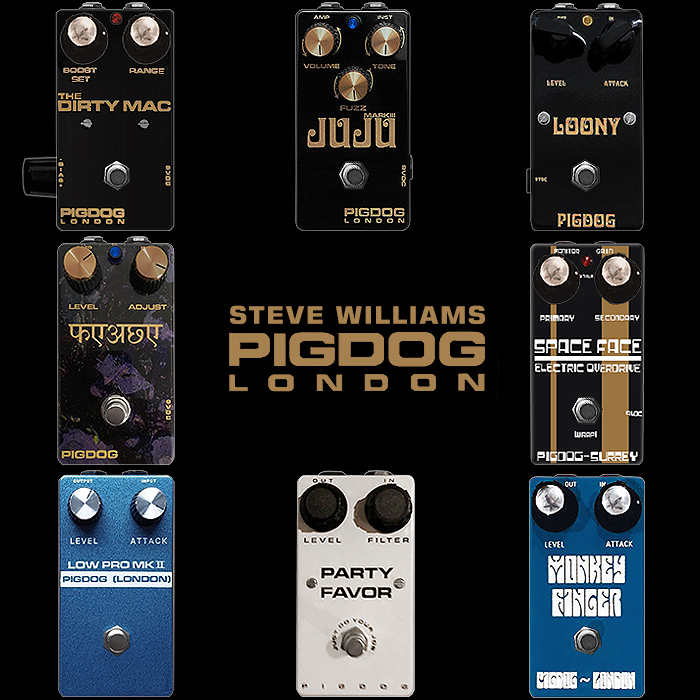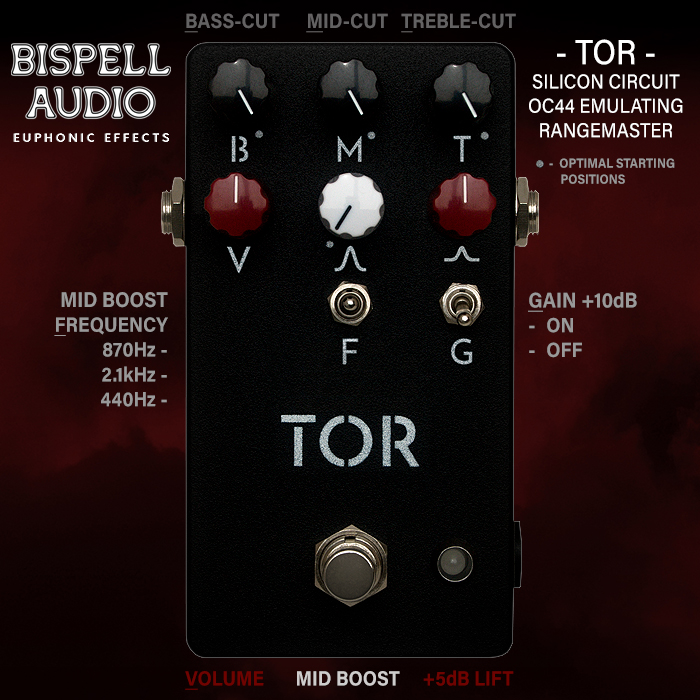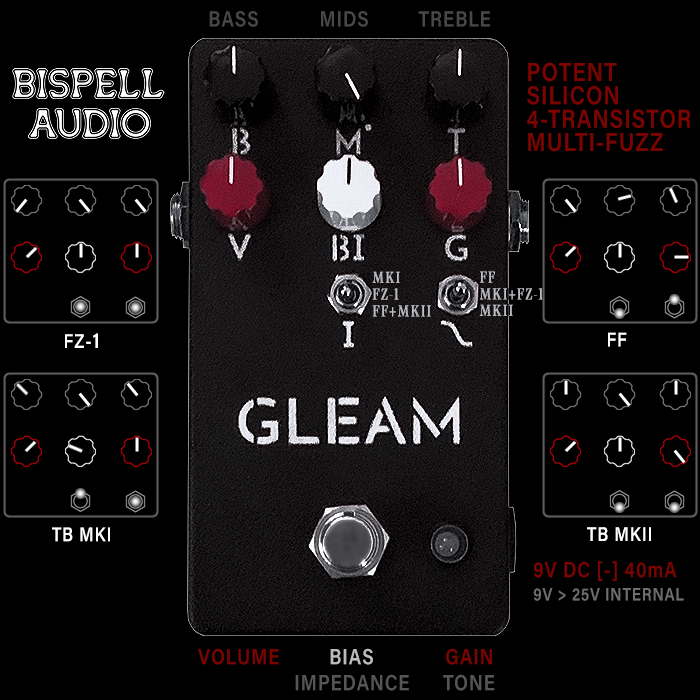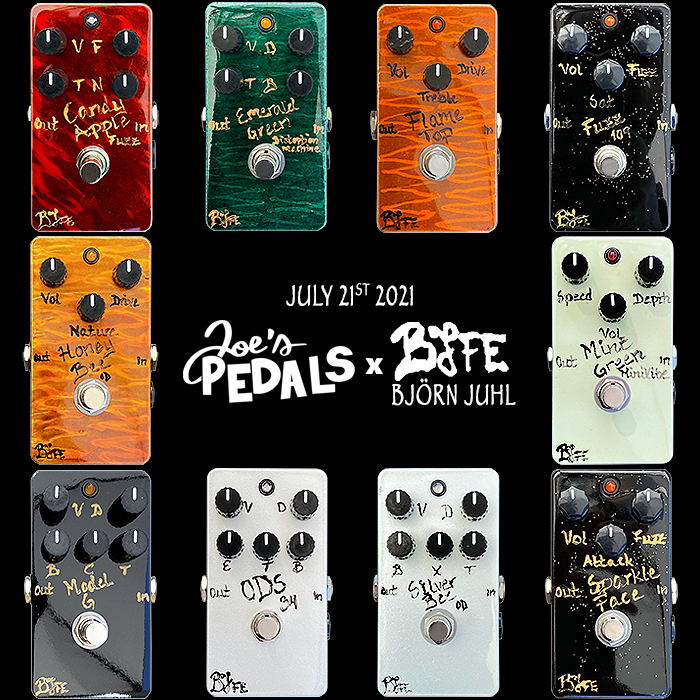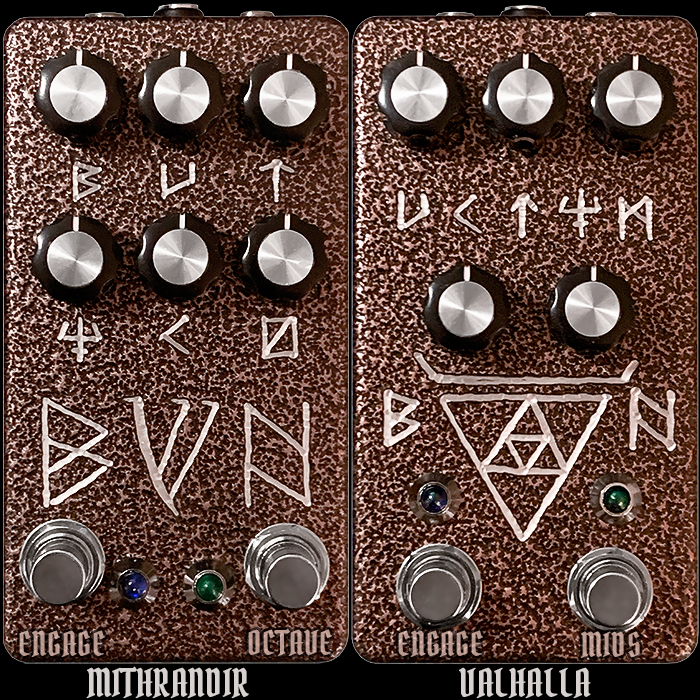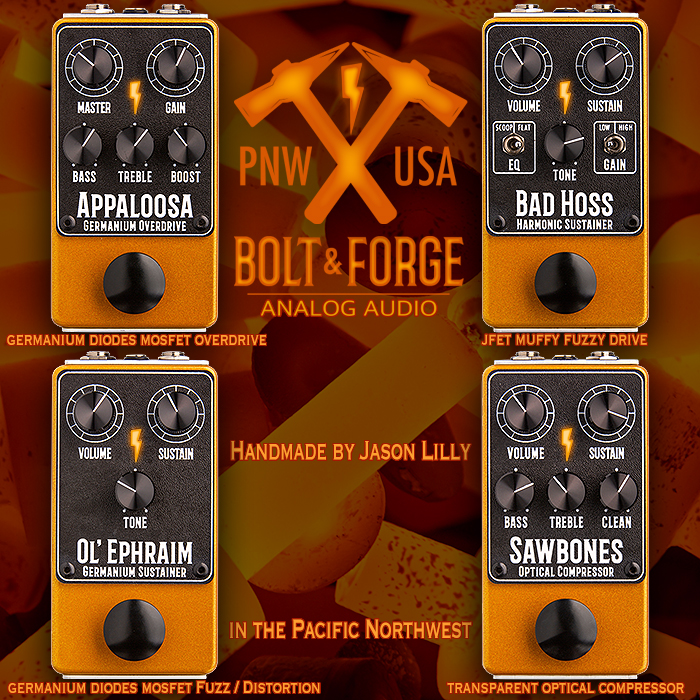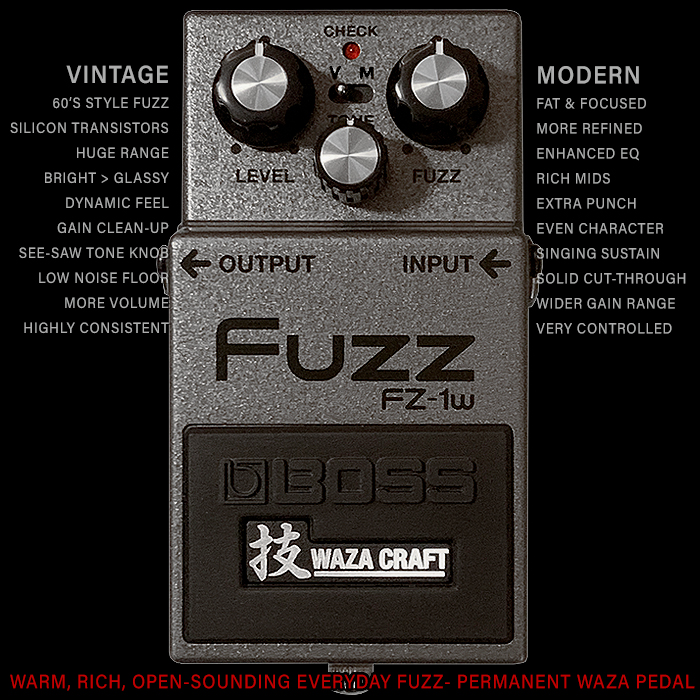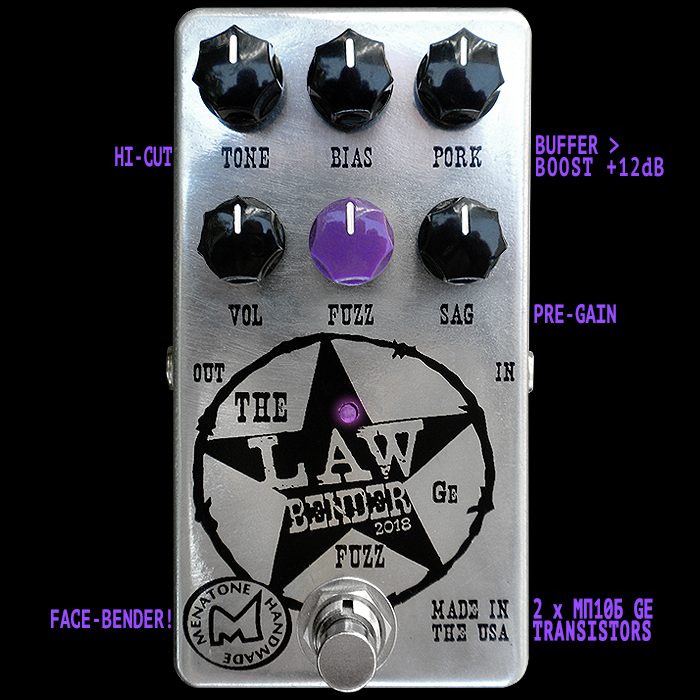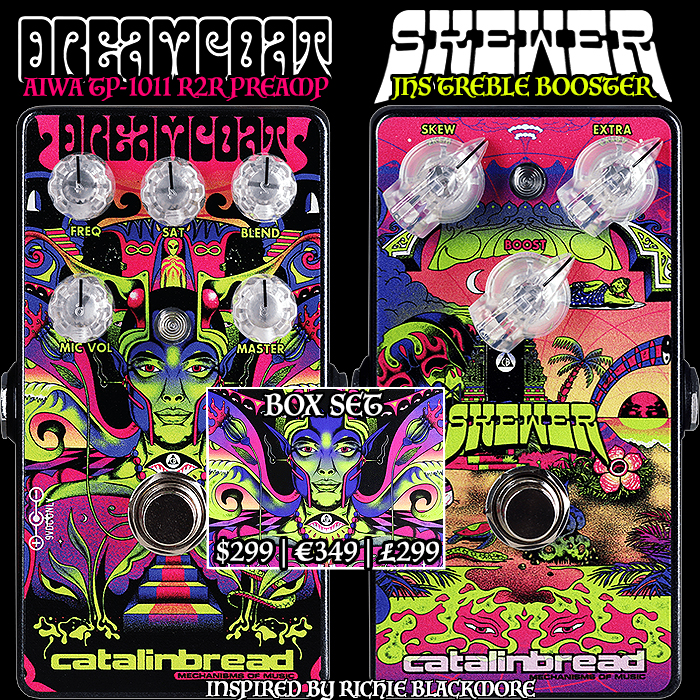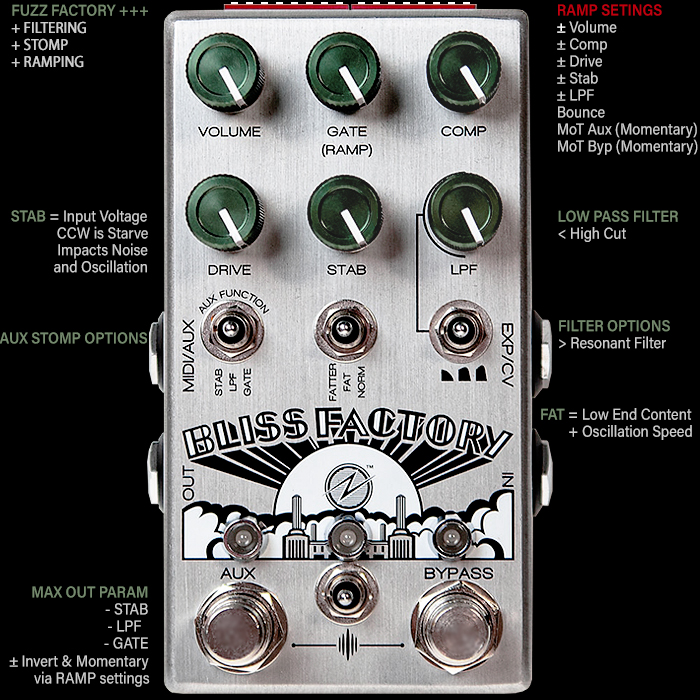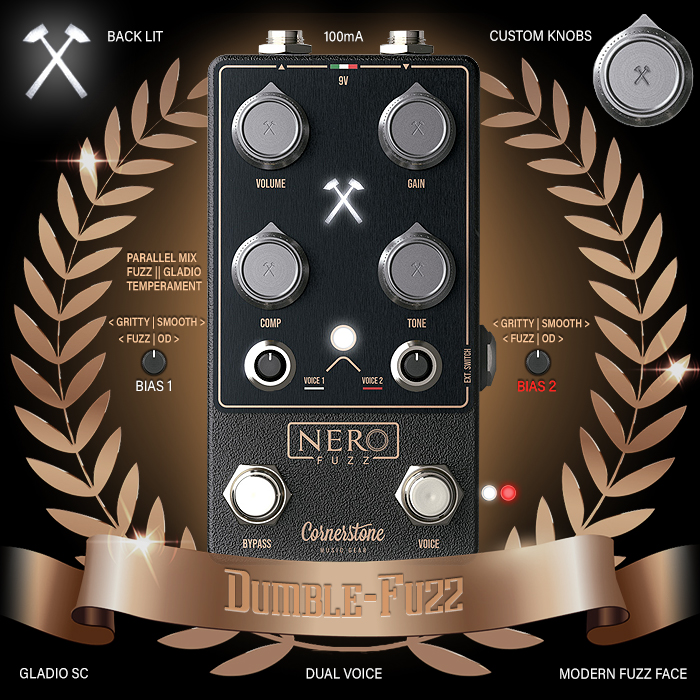Palmer Custom FX's The Solarist V2 and Solarist Green Ge/Si Fuzz Faces with Rangemaster Boost Pedals set a new benchmark for that combination format
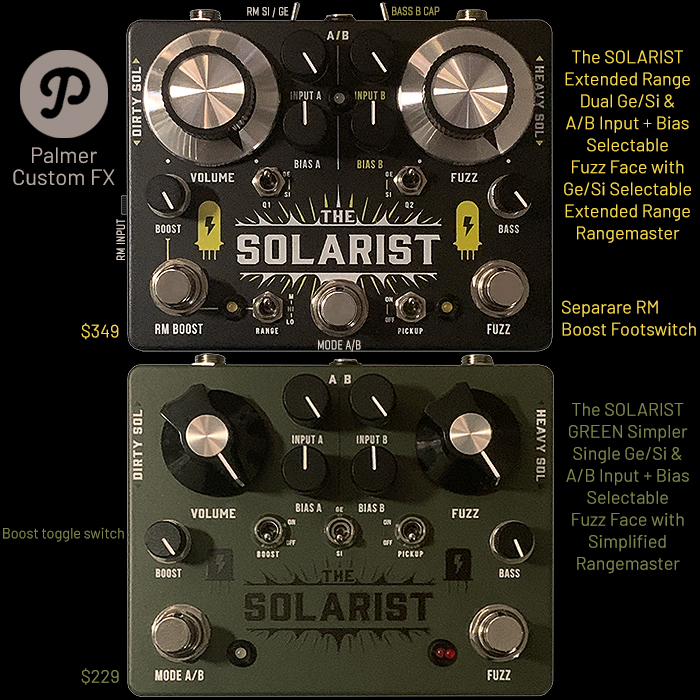
My adventure with Matthew Palmer’s Solarist - Swiss Army Fuzz Face and Rangemaster combo - goes back to August 15th - where I noted that there was alas no delivery option to the UK when trying to acquire one. Matthew and I got into a dialogue - which funnily included mention of how a close relative of his lived in the UK - and was due to visit him in November - and it probably made sense for them to take my Solarist back across the pond and then just ship it locally - which is exactly what happened - a few months later!
Actually there is a further twist in the tale in that said relative also brought back a copy of the simpler Solarist Green variety - so Matthew offered me a try-out of that one out at the same time - that one of course I have to ship that one back to his UK relative - which is a first for me - I don’t normally ship any pedals back - they’re usually all keepers!
I think most are familiar with the Fuzz Face and Rangemaster formats - so it’s important to focus in on what makes the Solarist different - and more expansive compared to what else is out there - as well as what the core differences are between the two versions of the Solaris - the Full Fat V2, and the Simpler Green Edition.
The easiest way to review the merits of each (as they contain mostly the exact same parts - transistors and all) - just that the Green variety is rather simpler in its overall capabilities and functionalities. So the easiest way to compare is by contrasting the number and types of controls, and then looking at the two pedals’ internals - as we do below!
Solarist V2 Controls - RM Si/Ge Toggle Switch (top edge), Bass ’B’ Mode Alternative Cap Toggle Switch (top edge), Volume, Input A, Bias A, Input B, Bias B, Fuzz / Gain, RM Input (left edge), Boost Level, Q1 : Ge/Si switch, Q2 : Ge/Si switch, Bass Level, RM Boost Footswitch, RM Range switch : Mid / Hi / Lo, Mode A/B Footswitch, Pickup Simulator : On/Off, Fuzz Footswitch.
Solarist Green Controls - Volume, Input A, Bias A, Input B, Bias B, Fuzz / Gain, Boost Level, Boost switch : On/Off, Q1 : Ge/Si switch, Pickup Simulator : On/Off, Bass Level, Mode A/B Footswitch, Fuzz Footswitch.
Solarist V2 Additions therefore : RM Si/Ge Toggle Switch, Bass ’B’ Mode Alternative ’Trebly’ Cap Toggle Switch, RM Input mini knob on side, Q2 : Ge/S switchi, RM Boost Footswitch, RM Range switch : Mid / Hi / Lo.
So you get a little more granularity and options for the V2 edition - and also a 3rd Footswitch to dynamically and independently engage the Rangemaster Boost. And you pay a premium of $120 for the extra features as such. While I feel that the pricetags of $349 and $229 respectively - represent extraordinarily good value - particularly when you see what’s going on inside the pedals :
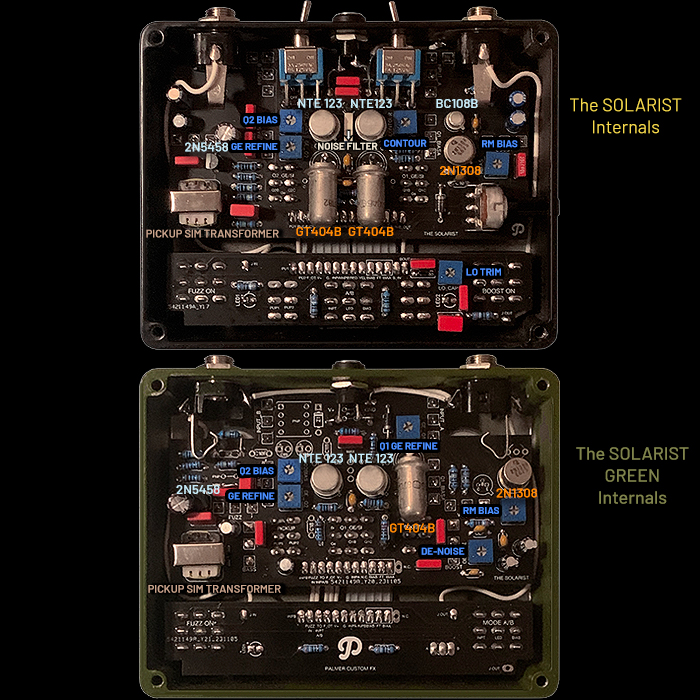
From the two pedals' internals there's a few things to pick up on!
Notably most of the key components are the same - including Silicon NTE123 and Germanium GT404B Transistors for the Fuzz Face, and core Germanium 2N1308 Transistor for the Rangemaster. The V2 has a further Q2 GT404B option, a Silicon BC108B Rangemaster Option, and a further more 'Trebly' Capacitor Option for the 'B' Mode - also the 3 Range options for the Rangemaster - which typically involves switching in further / alternative capacitors.
You will also note that some of the internal Trim-pots are different. The Solarist Green edition is newer, and some of those changes may very well transition across to the V2 eventually too - like the Contour changing to Q1 GE Refine, and Lo Trim changing to De-Noise. That said the V2 already has a Noise Filter - that sits between the 2 x NTE123 transistors - Matthew advises you apply that (move to down position) when both Silicon Fuzz Face and Silicon Rangemaster are maxed out! Although I did not feel the need for it!
You'll surely note how neatly the various components are arranged and laid out - Matthew is surely a perfectionist - with a great eye for and attention to detail.
Everything about those 2 pedals is very intuitive and incredibly easy to deploy - and Matthew has done everything to ensure you get optimal output - including the top quality audio transformers used as Pickup Simulators - so you can place those pedals anywhere in your signal chain!
At the core level those pedals pretty much sound identical. You just get more options with the V2 Solarist - and a slightly higher degree of granularity - and of course additional playback options.
There's much to recommend the simpler Green edition - while the extra Rangemaster footswitch is pretty essential for my own use of this type of pedal. I also really love the other extra options on the V2 edition - and make use of them all - so there was never any question of my wanting the Green one over the V2 - while I can totally understand how some might prefer that one. And indeed I'm in some ways highly tempted to own both!
Build quality is superb throughout - and the component selection is par excellence. I have other sort of equally superior and favoured fuzzes that use most of the same components in play here - I'm familiar with each of the transistors used here - while not necessarily in the same exact combinations.
When I first saw the Solarist V2 it was obviously a perfect pedal for me - and I was always destined to own one - I can't say that I'm anything but delighted with my all-round experience of the two pedals - and I particularly love all the overview, instruction and tips cards that come with the V2 edition in particular. This is Fuzz at a very high level - highest even, but at an incredibly reasonable price comparatively.
As mentioned - the Solarist V2 goes for $349, and the Solarist Green for $229 - via the Palmer Custom FX Website.
Here follow some further observations on each individual pedal, I don't believe there is a demo yet for the Solarist Green.
The Solarist V2 Extended Range Dual Ge/Si A/B Fuzz Face with Extended Range Ge/Si Rangemaster Boost - $349
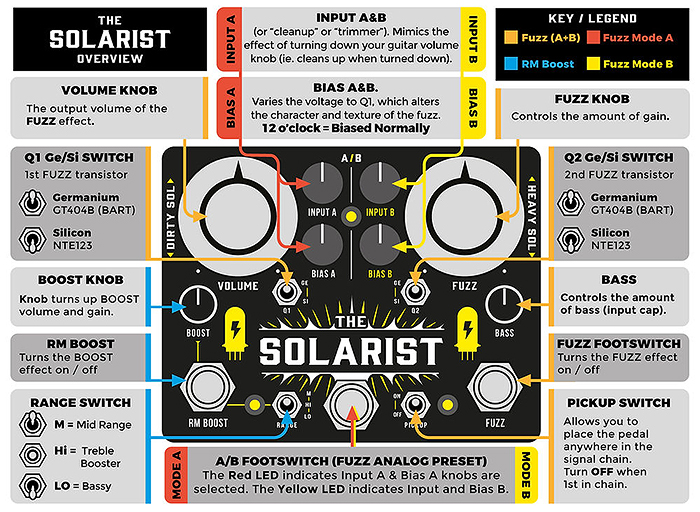
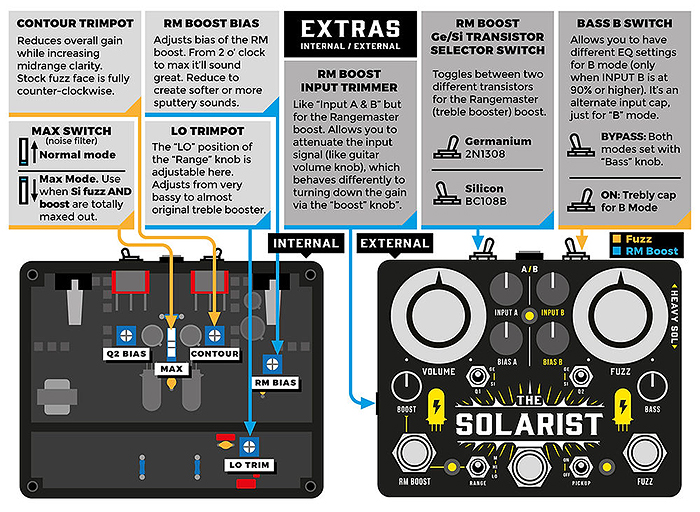
The V2 Solarist is all about options and versatility - ultimate granularity!
The A/B Input and Bias are wholly genius - as you can max out the Volume and Fuzz knobs - and then use the Input knobs to do 2 different gain level presets (gain roll-off) - and same with the Bias - where you can make it fully open, more spluttery or more sticky and wiry - depending on your current preferences.
For the V2 Solarist you have maximum permutations for the Fuzz :
- Input A + Bias A
- Input B + Bias B
- Bass B Trebly Cap : On/Off
- Q1 : Ge/Si
- Q2 : Ge/Si
You also have maximum permutations for the Rangemaster Boost :
- RM Boost : Si/Ge
- RM Boost Range :M [Mid] / HI [Treble Booster] / LO [Bassy]
- Dedicated RM On/Off Footswitch - independent / stand-alone operation
I have a few Ge/Si switching fuzzes in the collection - including my fairly recent Tru-Fi Two Face, DanDrive Austin Pride, and Expresso FX Dual Ge/Si Fuzz - also my Wren and Cuff De La Riva. But none of them are near as extended range as the Solarist - the combinations here really are ingenious - and highly intuitive - and actually wherever I set the dials it sounds fantastic. Would be interesting to see a V3 edition - where you could vary the Ge/Si assignment per the A/B Modes also - that would be even more next level - not that this pedal is not fully next level already!
All combinations of Ge/Si sound great - where Q2 Germanium with Q1 Silicon sounds really cool too - and is not a voicing you can do on the Solarist Green - nor can you to full fat GE either.
I've played both pedals for about half a week now - and tend to have the Red A Mode voicing a little more aggressive - Input A just knocked back a touch. While on the B Mode I like to deploy the Trebly Cap option - and knock back the Gain level of that quite a bit more than A. I enjoy deploying both Germanium and Silicon RM transistors too - each has their own distinct accentuation.
My Rangemaster is mostly on and full in Mid Setting, and Bass is mostly on full too! (Humbucker Guitar).
I've also tried both pedals in various different positions of the board - and the Transformer Pickup Simulator works superbly. You still probably get just a smidge more dynamics and verve near the front of the chain - while the Pickup Simulator is truly a wonderful addition - and not all of those are created equal.
I like pretty much everything about this pedal - it sounds incredible and functions beautifully. I do wonder if Matthew would ever consider putting in a second set of Transistors and allow you to apply those per A/B Mode also! Probably asking too much!
Wonderful pedal in any case and highly recommended for all classic fuzz fans - both Fuzz transistor types sound great here - individually and in combination. This really is a magical combination box - and actually really attractively priced at $349 and so worth it!
If I didn't have one already I would order one double quick on the Palmer Custom FX Webstore - to make sure I got that exact current combination of Transistors that sounds so good!
The Solarist Green simpler Ge/Si A/B Fuzz Face with Rangemaster Treble Booster - $229
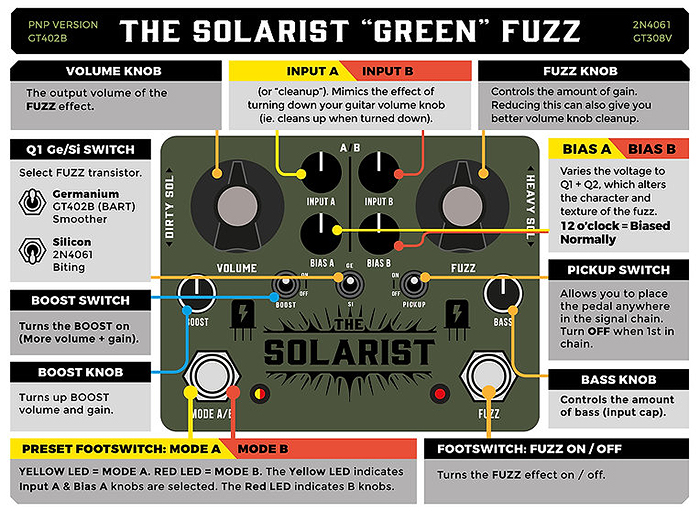
So the idea with the Solarist Green is for it to be more immediate and accessible - both in function and in price - where you save a good $120 on the full fat edition.
For the equivalent functions - the Solarist Green sounds just as great as the V2 edition - as it comes with the exact same core components. In fact at times I had it sounding better than its pricier more extended featured sibling - I'm sure I could have dialled that one in closer - but the Green just always sounded immense.
You loose a llitte granularity here - alongside the Q2 Ge/Si option (so one less Germanium Transistor), and you don't get the Silicon RM Boost option, or the more Trebly Mode B Cap.
More significantly you don't get the RM Boost 'Range' switch - where you can't select the 3 different Mid / Hi / Lo frequency ranges, and you loose the 3rd dedicated RM footswitch too - which means you have that on a toggle switch instead, and can't punch it in - in the same way as you can on the V2 model. That said - I mostly had the RM Boost on and Full all the time on both pedals - and on the V2 it can get a little annoying to have to stomp both of those footswitches on and off independently - versus just the one on the Green edition. Perhaps we need an extra toggle on the V2 - to allow you to have the RM Boost default engaged too! (Meaning that you can switch both on and off with just the one main footswitch that is!)
So depending on what your main playing preferences are - there are several factors to recommend the Green edition. For me I really like the extra granularity and options that come with the V2 - but I really appreciate the Green version too and totally see why Matthew made it in this exact way. It's not just about reduced features and price - it definitely has its own playback logic too.
Both pedals are truly fantastic and such clever innovations. I won't comment on the similarity of the V2 to a certain Duellist's look and feel - but I really like all the knob choices throughout - and the different large knobs on each edition. Every component selection here inside and out is on point!
Matthew is very evidently a details guy - and everything about these 2 pedals is top drawer - you just need to decide how much you can / want to spend - and how much granularity you're likely to want to use. The Solarist Green most definitely has several of its own advantages - and is available for a really reasonable $229 from the Palmer Custom FX Webstore.
I bought and paid full whack for the V2 - while the Solarist Green was just a loaner - so I will be sad to see that go back - these pedals always become part of the extended family (in fact I don't usually send back pedals at all!) - I guess some just need to make their own way out into the world! I'd still quite like to retain the green one too!
What are your own personal preferences here? Full Fat or more Straight Up! Black or Green?

